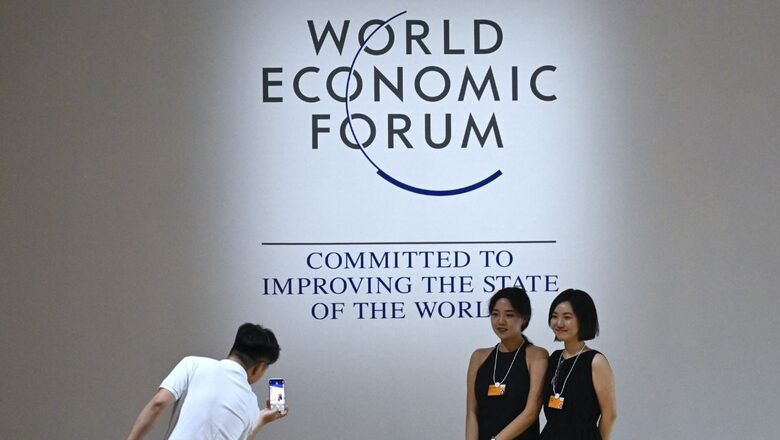
views
Davos, the ski resort town of Switzerland, has become famous for its annual summit where it hosts world leaders and top industry leaders from across the globe.
Like every year in January, the Switzerland city will host the world’s rich and powerful for the annual meeting of the World Economic Forum (WEF).
The meeting will take place from 15 to 19 January where delegates from many sectors converge for talks and meetings to address urgent global issues. WEF this time is focused on rebuilding trust in an era of rapid change and increased fragmentation.
What is the World Economic Forum?
In the early 1970s, the Cold War divided the world into two blocs and there were several challenges facing global politics like the Vietnam war and the oil crisis.
Swiss-German economist and professor Klaus Schwab founded the World Economic Forum in 1971 as a not-for-profit foundation under the supervision of the Swiss Federal Government to promote stakeholder capitalism.
It started as the European Management Forum, however, it changed its name to the World Economic Forum in 1987 as it sought to broaden its vision to provide a platform for resolving international conflicts.
For half a century, the World Economic Forum in the Swiss Alps has brought together executives and policymakers to sing the praises of globalisation, but that process is seen as unwinding as new fault lines harden around the world.
The forum has addressed the key events of world history including the fall of the Berlin Wall to the rise of economic globalization and runaway climate change.
The annual meeting comprises of speeches and sessions on everything from the outlook for the global economy to conflicts. The meeting is also famous for the networking and social interactions that take place in the corridors, side rooms, hotel suites, and restaurants of the Swiss town. It also hosts bilateral meetings between heads of state and business leaders in every available space.
Why It is Held as Davos?
Davos, a city at an altitude of 1,560 meters, with ice-slicked streets and a long train ride to the nearest airport, is not the most obvious location for a major international conference.
However, Professor Klaus Schwab chose Davos as the home for the annual meeting for the escape from the everyday that the mountains represent in Swiss and German culture. The peaceful place also gives a perspective away from the daily challenges of running a business.
Davos was the setting for Thomas Mann’s novel The Magic Mountain. The book tells the story of a young man who goes to Davos to stay at a sanatorium for three weeks and ends up spending seven years.
Who is coming This Year?
Around 1,000 corporations hold the membership in World Economic Forum and members send a small number of key delegates to the meeting in Davos based on their membership.
This year, over 100 countries, all major international organisations, the Forum’s 1000 partner companies, civil society leaders, foremost experts, young changemakers and social entrepreneurs are expected to attend the World Economic Forum this year.
In 2023, there were more than 2,000 delegates, including John Kerry, Olaf Scholz, Christine Lagarde, Jens Stoltenberg, Ursula von der Leyen and other prominent names.
What Has Davos Achieved in the Past?
In the past, the World Economic Forum has acted as a peace broker and helped to avert war between Greece and Turkey with the signing of the Davos Declaration in 1988.
It was also in Davos that Gavi, the vaccine alliance, was launched in 2000. Gavi now helps to vaccinate nearly half the world’s children from diseases and played a key role in delivering Covid-19 vaccines to underdeveloped and developing countries.
What Will the Meeting Focus this Year?
The 53rd meeting of the World Economic Forum comes at a time of increasing geopolitical polycrisis, new economic policies shaped by the climate crisis, and rapid advancement of technologies such as artificial intelligence. It also comes amid a series of interlinked crises including the Red Sea blockade, Israel-Hamas War and Ukraine War.
This year, the focus will be on exploring the opportunities enabled by new technologies and their implications on decision-making and global partnerships.
The delegates of Davos 2024 will explore themes including reforming multilateral approaches, using AI for the benefit of all members of society, upholding the momentum from COP28 and maintaining an open trade system.
According to a report in McKinsey, the meeting will explore four areas:
- Attaining security and cooperation in a fractured world.
- Generating growth and jobs for a new era.
- Artificial Intelligence as a driving force for the economy and society.
- A long-term strategy for climate, nature and energy.



















Comments
0 comment